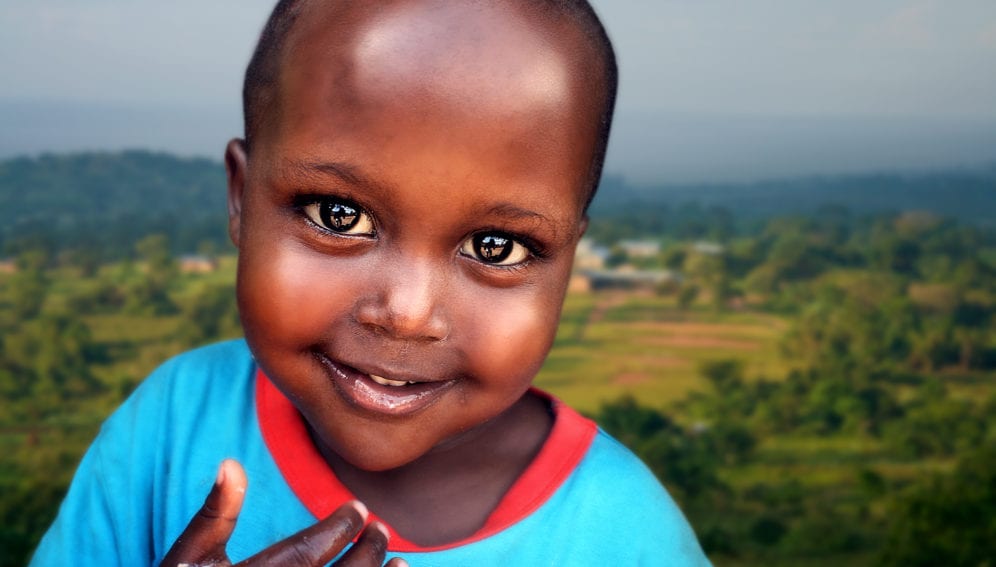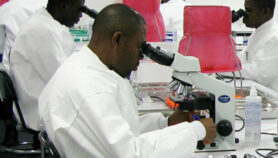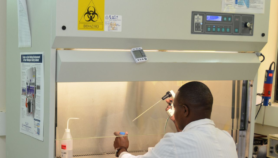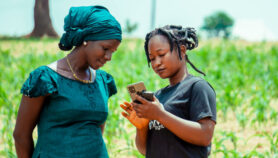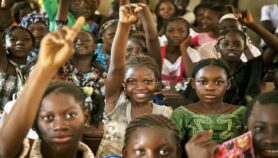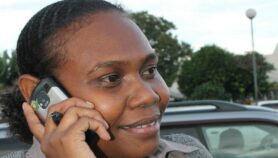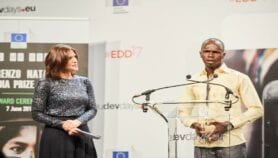By: Gilbert Nakweya
Send to a friend
The details you provide on this page will not be used to send unsolicited email, and will not be sold to a 3rd party. See privacy policy.
[NAIROBI] Two Africa-based innovations have won the first and second prizes in the Empowering People Award, a competition that was launched at the United Nations Summit for Sustainable Development in Rio de Janeiro, Brazil, last year to identify simple technological solutions.
The OneDollar Glasses project was declared winner of the top prize worth 50,000 euros (around US$67,500) at a ceremony held in Nairobi, Kenya, last week (30 October).
Siemens Stiftung (which translates as the Siemens Foundation), manages the competition.
The OneDollar Glasses project invented lightweight, flexible spring steel frame and lenses that can be locally manufactured with simple bending machines.
“We came up with a burning frames machine that can produce [eye] glasses easily and which are affordable to poor people,” says Aufmuth Martin, the inventor and chairman of the Germany-headquartered OneDollarGlasses Association. “The materials used to make the glasses sum up to US$1, which is affordable.”
The project is being piloted in Bolivia and four countries in Sub-Saharan Africa — Burkina Faso, Rwanda, Tanzania and Uganda.
Ali Ndayisaba, a civil engineer based in Rwanda, who is part of the project team, says that they are now committed to developing the project and advancing its course further in Africa.
“We are going to use the money to train people all over Africa so as to reach the 150 million people with eye defects,” reveals Ndayisaba.
“We are going to use the money to train people all over Africa so as to reach the 150 million people with eye defects.”
Ali Ndayisaba, OneDollarGlasses Association
Moses Musaazi, an electrical engineer and a lecturer at Makerere University, Uganda, emerged the 30,000 euro (around US$40,500) second prize winner for designing MakaPads — biodegradable and environment-friendly sanitary towels — out of papyrus reeds. The innovation is being trialled in Sierra Leone and Uganda.
Musaazi tells SciDev.Net that the main objective of designing the pads was “to assist poor school girls [to] access affordable sanitary pads”, adding that young girls unable to buy conventional pads are absent from school during their menstrual days.
Musaazi says the benefits of the MakaPads include their affordability and the creation of employment to a cross-section of society including refugees, the urban poor, and university students.
The pads sell for 50 per cent less than other brands.
He adds: “We have empowered school girls to study with dignity and not to drop out of school. We have empowered women economically as they are the managers and producers of MakaPads, either in a cottage industry based in their own homes or at a small factory”.
Musaazi intends to scale up MakaPads production and distribution in Africa and beyond.
Rolf Huber, the managing director of Siemens Stiftung, says that the competition received 800 entries from 90 countries, from which 23 finalists were selected through experts’ evaluation. “The competition’s aim was to empower people through practical solutions and technological inventions,” Huber notes.
The African Union commissioner for economic affairs Anthony Maruping tells SciDev.Net that such competitions should be supported by more development partners across the world to encourage new technological innovations.
This article has been produced by SciDev.Net's Sub-Saharan Africa desk.


